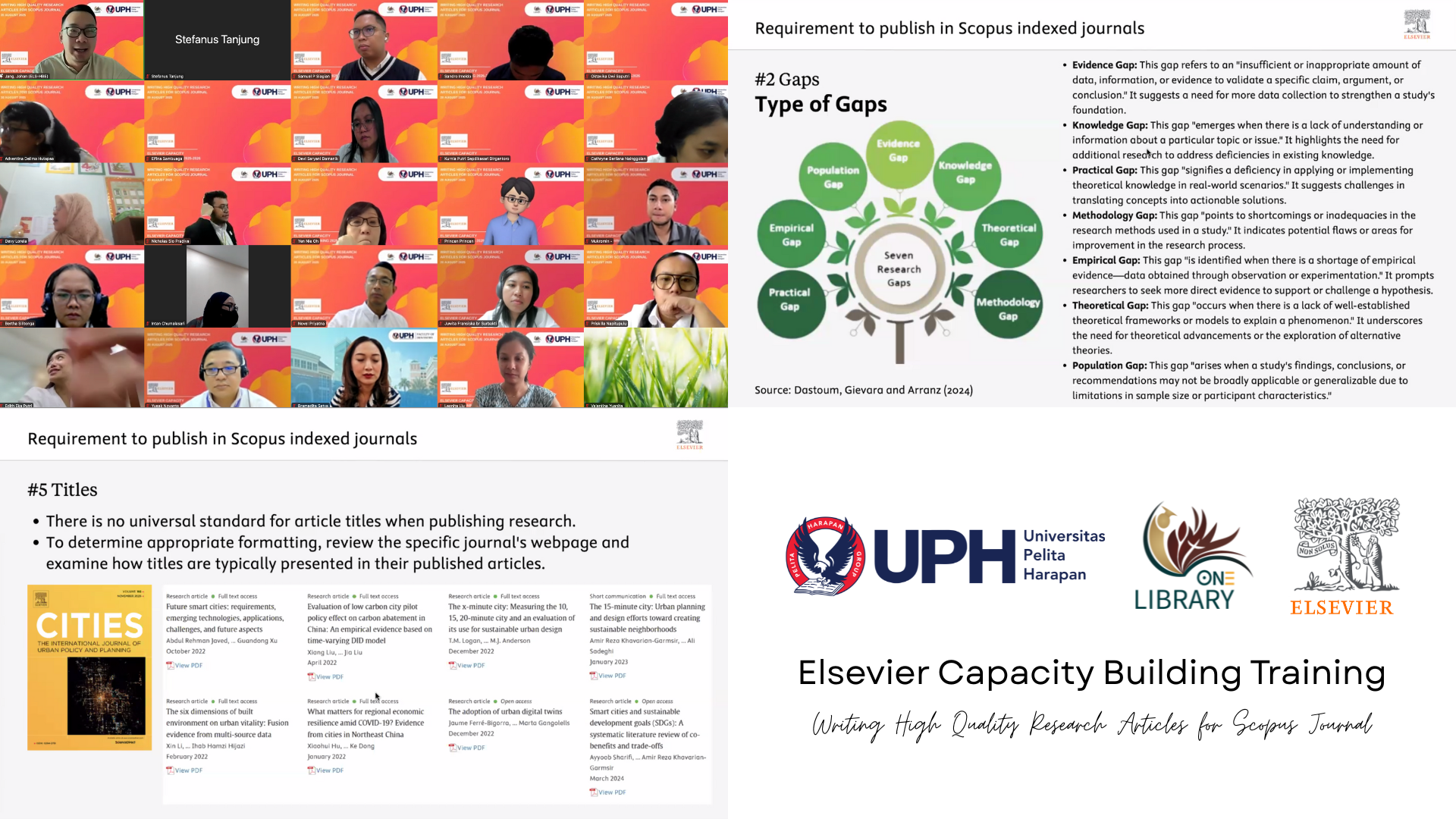On Wednesday, August 20, 2025, the ONE UPH Library, in collaboration with Elsevier ScienceDirect, held a webinar entitled “Writing High-Quality Research Articles for Scopus Journals” as a part of Elsevier’s Capacity Building Training Series.
The session, led by Dr. Johan Jang, began with a brief introduction to Elsevier’s history and its ongoing commitment to supporting the academic community through access to high-quality scientific content and various capacity-building initiatives.
During the session, Dr. Johan highlighted several key requirements for authors seeking to publish their articles in Scopus-indexed journals:
Originality – Strong emphasis is placed on ensuring that submitted articles provide original contributions or new insights to the academic community.
Clear Research Gap – Authors must clearly identify and articulate the research gap addressed, whether related to theoretical, methodological, or empirical dimensions.
Coherent Results and Discussion – The findings and discussion sections must address the research questions posed at the beginning of the article, provide meaningful comparisons with existing literature, and clearly demonstrate the uniqueness of the study or the position of the argument (e.g., supporting or challenging previous findings). Unique findings must also be explained in detail.
Coherent Results and Discussion – The findings and discussion section should answer the research questions presented at the beginning of the article, provide meaningful comparisons with existing literature, and clearly demonstrate the uniqueness of the study or the position of the argument (e.g., supporting or challenging previous findings). Unique findings should also be explained in detail.
Credible References – The importance of using high-quality and credible references is emphasized. Dr. Johan emphasizes that the quality of references
As we near the end of the webinar, Dr. Johan also advised participants to avoid submitting manuscripts to journals offering “fast-track” publication options—often a hallmark of predatory journals. He also emphasized Scopus and Elsevier’s commitment to maintaining strict ethical standards and rigorous selection criteria in the indexing of journals.

0 Comments.